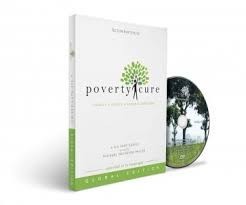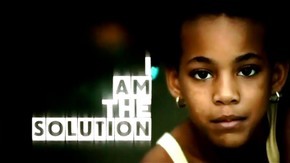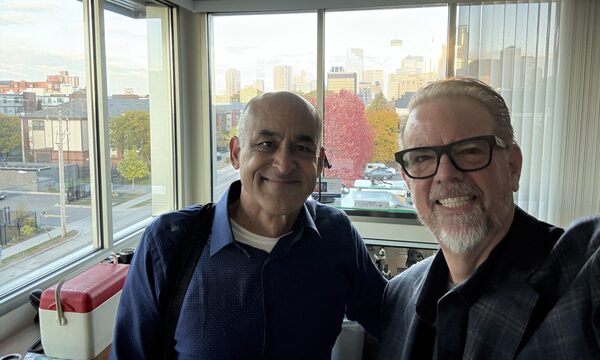
I had the occasion to watch a six-part DVD series called PovertyCure, produced by the Acton Institute. It is indeed an eye-opening series that I’d encourage you to watch. Each part is less than 30 minutes long and is available in the Biola Library (BV4647 .P6 P68 2012 DVD). It challenges the effectiveness of the traditional model of helping the poor through foreign aid in regions where there is wide-spread poverty and the economy is largely depressed. This aid can come in the form of government sponsored foreign aid, through global agencies such as the IMF or World Bank, and even from NGO’s (both secular and Christian). By the end of the series, I think most would at least pause to consider if “aid” (as a “handout”) helps to alleviate poverty, or whether it actually exacerbates the problem.
While there are number of elements in the videos that are riveting to the soul, there is one particular concept from PovertyCure that I’d like to explore: the value of human beings. As odd as this might sound, some aspects of modern non-Christian efforts to fight poverty discussed in the DVDs reminded me of an ancient Mesopotamian text, Atrahasis (weird, I know, but bear with me). It seemed to me that both shared a very similar view of human beings. Let me explain.
PovertyCure points out that hidden underneath one of the UN’s Millennium Development Goals (MDG) to end poverty worldwide is the strong advocacy of abortion. The push for it comes under the guise of improving maternal health. All of us should indeed support better maternal health, and the lack of it in so many areas around the world is—without a doubt—tragic. But quietly beneath the good goal of improving maternal health, at least according to one report from the MDG entitled “Access to Safe Abortion,” is the staunch promotion of abortion, arguing that abortion eradicates poverty through population control. The authors state: “in countries where fertility was historically at high levels, access to abortion has been demonstrated by demographers to be a significant contributor to declining fertility and slower population growth.”[1] The underlying assertion is that fewer human beings equals less poverty because resources aren’t spread as thin.
And while the authors acknowledge the power of contraceptives over abortion (“increasing use of contraception plays a key role in preventing unintended pregnancy and, over time, in reducing the number of abortions”[2]), and furthermore that contraceptives should be preferred over abortion from a policy standpoint (“in the context of national policies to stabilize population, promoting use of effective means of contraception—as a substitute for abortion—is generally regarded as a desired policy goal”[3]), the article does nothing to ask for increased resources for contraceptives, but instead calls for stronger protections for access to abortions. The very irony of positions such as these is that the promoted method for ending poverty (i.e., better quality of life and increased wealth) is through decreasing the number human beings, even if through abortions (which, in my view, is the very diminishing of the quality of life—it extinguishes it all together!).
How is any of this connected to a Mesopotamian text written about 3,700 years ago? Atrahasis recounts the story of a flood sent by the gods to wipe out humankind. The reason? To quiet the increasing cries and lament of an ever increasing human population who were likely suffering due to a lack of food and resources (I’m hoping I don’t sound so weird anymore). Atrahasis is interesting because of its parallel to the flood narrative in Genesis, but we must set aside this remarkable parallel for the moment and focus on the notion of humankind as a resource problem. The ending of Atrahasis is illuminating because it records ancient policy on “family planning” as the long-term solution to overpopulation: a class of women are created that are unable to bear children; a “Pashittu-demon” is created whose job it is to snatch babies out of their mother’s laps; and priestesses were established, who were for the most part not allowed to have children. Other Mesopotamian texts—such as Enuma Elish, Enki and Ninmah, and The Poem of Erra—reveal similar world views; humankind is good insofar as they could produce food for the gods (sacrifices), but if the population became so large such that people were a drain on resources, then human beings became a problem. They were not only expendable, they needed to be expended.
The PovertyCure series, however, advocates the opposite view: human beings are essential for economic growth. People aren’t the cause of impoverished resources, but rather the answer. If human beings are created in God’s image, how then can one view human beings as a problem for poverty? How can population elimination be humane? There is something oxymoronic in it all, and it also puts human beings on the same plane as cats and dogs who are “humanely” spayed and neutered. And while aid to other countries is good, who—or what—are we trying to help, the person or the economy? Some would argue one helps the economy in order to help people, and I would agree. But, when the solution comes in the form of hurting the very “thing” (i.e., the person) one is trying to help, then to me it seems both counterintuitive and counterproductive.
If you watch PovertyCure, you’ll see that when people are given the right circumstances and opportunities, most will flourish and thrive. And as they thrive, those around them will also grow and flourish. There are different ways PovertyCure advocates this, such as through micro-financing for individuals, loans with reasonable interest rates to small and medium sized business, entrepreneurial partnership, etc. A helpful illustration given in the videos uses trees as an analogy. If you take the seed or a shoot of the tallest tree in the forest and plant it in a pot, no matter what you do that tree will never grow to its potential. It is limited by the pot. The people in these impoverished economies are in essence bonsai trees, never able to grow beyond their limited soil. You can water it all you want (foreign aid), but in the end that tree will never flourish. In fact, overwatering a plant in a pot can kill the plant. Again, I encourage you to watch these videos or have a good look through the PovertyCure website and get further information on biblical and responsible ways to alleviate poverty. Obviously, this blog article can’t cover the vast amount of material presented in the series.
Human beings should not be seen as only small cogs in an economy—excess that can be trimmed at will. Human beings are the exact opposite—when given the right circumstances to thrive, humans are drivers of the economy. Over and over again those in the videos state that they do not want aid, that they do not want handouts. Not because they are not grateful, but because they have seen first hand that it actually destroys local economies. Instead of being self-sufficient, aid recipients become permanent dependents, and with the label “dependent,” comes the loss of human dignity. Instead, human ingenuity and creativity should spur development. It is only when humans are stifled from productivity through economic and/or governmental suppression that too many human beings become a problem.
Genesis is strikingly different from its contemporary literature because it promotes the value of human beings. Human beings are made in the image of God, not workers created to feed the gods. Human beings are asked—indeed commanded—to multiply, not decrease. There is in view an abundance of resources, from the birds in the air to the fish in the sea, to the plants and trees each to its own kind, and humans are to manage all of these resources to further its abundance. Genesis 2:11-12 shows that even in Edenic times, different regions had different resources (Havilah had good gold, as well as bdellium and onyx).[4] There was always supposed to be trade and economy, even in the garden. Giving access to the economy that God entrusted human beings is the key to human flourishing. Dignifying human beings beyond a handout is the path out of poverty. God didn’t order the world in such a way that handouts were the way to survive. The way to thrive was through the larger structures of economy, agriculture, animal husbandry, and so forth. It was always meant to be a whole life experience, not a short-term, one-time, isolated event.
So why this journey from the ancient Near East to present day in this blog article? To show that throughout history, human beings have consistently undervalued human beings. Ironic, I know. But the Bible stands in stark contrast to society’s low view of human beings, both then and now, and even against the highest echelon of “arrived” humanity and secularism rooted in humanitarianism that attempts to exhibit a form of generosity and care for the poor, but fails to give full value to each human life. The Bible clearly teaches that all people (including unborn babies) are dignified human beings and created in God’s image, and should be treated with respect and value in every way—including the way help is offered.
As episode two of PovertyCure concludes, bright faces of local entrepreneurs flash across the screen along with the words:

I am a human being…
Created in the image of God…
I’m not the problem…
I am the solution.
I couldn’t agree more.
[1] Cane and Hord Smith, “Access to Safe Abortion,” 8.
[2] Ibid., 9.
[3] Ibid., 8-9.
[4] Many thanks to J. Michael Thigpen for this insight. See his insightful Good Book Blog article on Genesis and Economics: http://www.thegoodbookblog.com/2017/may/09/in-the-beginningeconomics/
 Biola University
Biola University



.jpg)